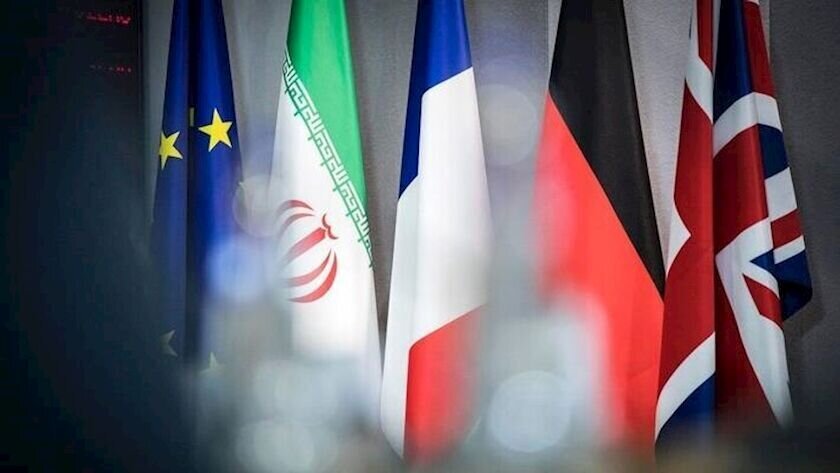Iran, E3 to convene in Istanbul for nuclear talks

TEHRAN – Iran and the European trio of France, Germany, and the United Kingdom (E3) are set to hold a new round of nuclear negotiations in Istanbul on Friday, amid heightened warnings from Tehran that triggering UN sanctions through the 2015 nuclear deal’s “snapback mechanism” could lead to irreversible consequences.
Esmail Baqaei, spokesperson for Iran’s Foreign Ministry, announced on Wednesday that deputy foreign ministers from Iran and the E3 will meet in Istanbul to discuss ongoing nuclear diplomacy, including indirect U.S.-Iran talks.
“This meeting, planned for Friday, aims to continue consultations with the E3 on key issues, including the nuclear agreement and regional developments,” Baqaei stated.
Earlier on the same day, Foreign Minister Abbas Araghchi reiterated Iran’s readiness to engage with Europe but criticized the E3’s approach, speaking to reporters after a cabinet meeting.
“We are prepared to negotiate, but unfortunately, Europe has isolated itself through its own policies,” he said, adding that the Istanbul meeting represents a “fragile yet promising step” toward reviving diplomacy.
The talks come after multiple delays. A previous round of Iran-E3 negotiations, initially scheduled for early May in Rome, was postponed reportedly due to shifting timelines in U.S.-Iran indirect talks.
Kazem Gharibabadi, Iran’s Deputy Foreign Minister for International Affairs, described earlier discussions with the E3 as “open and constructive” in a statement in January, emphasizing that Tehran had raised issues such as sanctions relief, nuclear cooperation, and Europe’s “unacceptable support for Israeli crimes in Gaza.”
Iran’s warning on snapback
Araghchi issued a stark warning to European powers on Sunday, stating that any attempt to invoke the snapback mechanism under UN Resolution 2231 would mark the “end of Europe’s role in the Joint Comprehensive Plan of Action (JCPOA)” and risk “irreversible tensions.”
His post was part of a longer op-ed for Le Point, in which he wrote: “We have officially warned all JCPOA signatories that abusing the snapback mechanism will lead to consequences—not only terminating Europe’s role in the deal but escalating tensions beyond repair.”
Iran maintains that Europe’s apparent eagerness to trigger snapback—despite the U.S. withdrawal from the JCPOA in 2018—reflects bad faith and undermines Tehran’s compliance efforts.
From Tehran’s perspective, reimposing sanctions would sabotage diplomatic channels and cement Europe’s alignment with U.S. "maximum pressure" tactics.
Particularly with Iran’s recent experience with Europe—when bold promises to alleviate its economic hardships and shield its adherence to international commitments fell short—Tehran steadfastly continued its JCPOA commitments even as Trump unilaterally exited the deal and imposed crippling sanctions in his first term.
Although the E3 loudly vowed to "save" the agreement and play a constructive role, their actions ultimately mirrored the unhelpful actions of the U.S.
Europe’s strategic confusion and sidelining
While Iran has consistently sought to reengage with Europe, the E3’s role has diminished amid Washington’s unilateral diplomacy.
European frustration peaked in April when the U.S. began indirect talks with Iran in Oman without consulting its allies, despite their pivotal role in enforcing sanctions.
Meanwhile, Araghchi has repeatedly emphasized Tehran’s willingness to rebuild ties, including offers to visit Paris, Berlin, and London. “We do not seek to exclude Europe. Global understanding, including IAEA oversight, remains key,” he stated.
Iran has expanded its diplomatic outreach, consulting with Russia, China, Saudi Arabia, the UAE, and Qatar on the nuclear issue, thus, it is not Iran that chose to sideline and exclude Europe.
The Europe-Grossi nexus
Meanwhile, criticism of IAEA Director General Rafael Grossi has intensified in Tehran. Iranian officials have noted that Grossi has politicized the agency’s mandate by making unverified statements, such as his recent claim that Iran is "capable of developing six to seven nuclear bombs."
The Tehran Times previously revealed that the E3 has pledged support for Grossi’s bid to become the next UN Secretary-General in exchange for him going along with Europe’s punitive agenda regarding Iran.
Sources suggest Grossi’s acts aim to justify a forthcoming report that could enable the E3 to trigger snapback sanctions—something that derails diplomacy and undermines the prospects for genuine, balanced dialogue with Tehran.
Leave a Comment